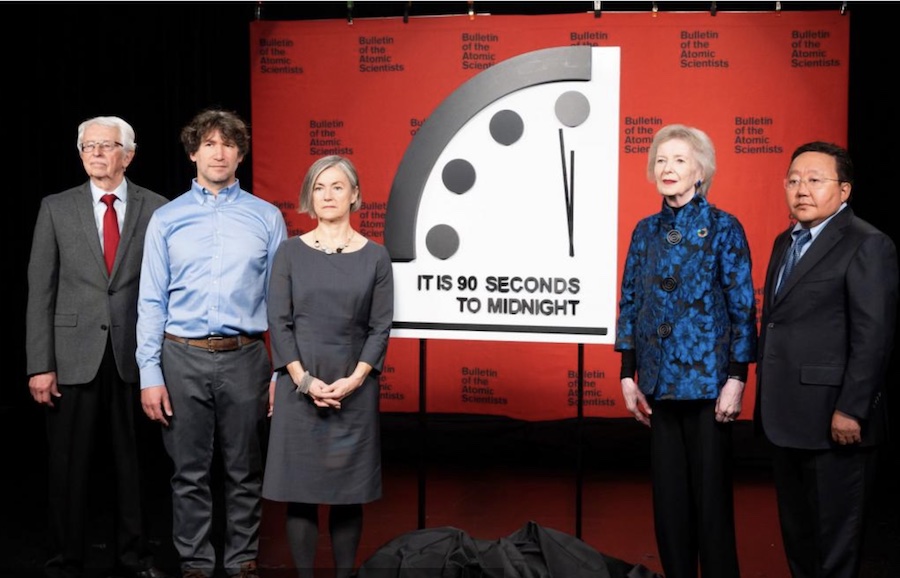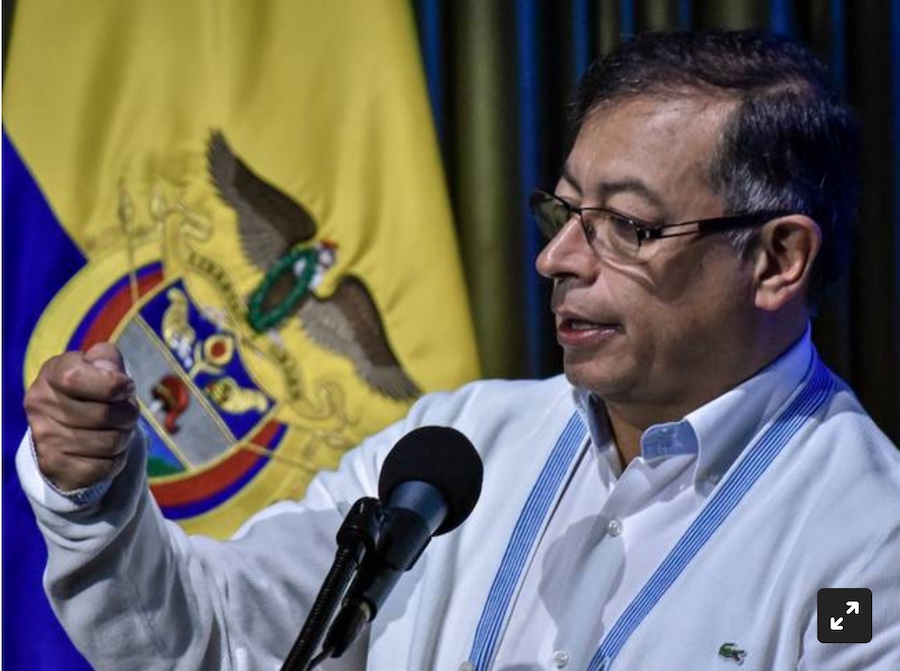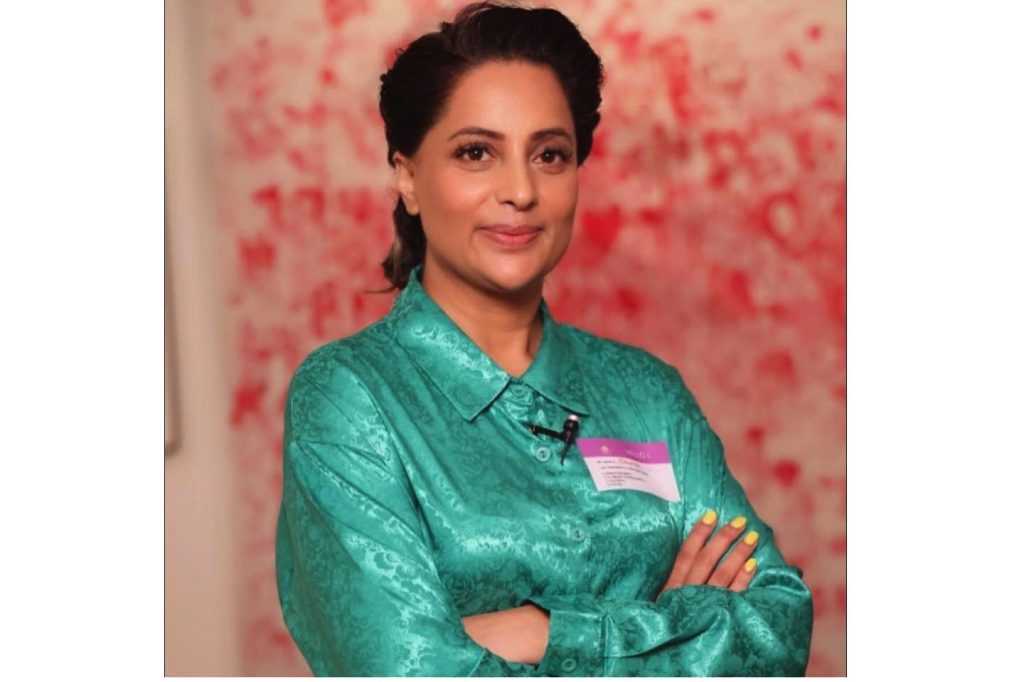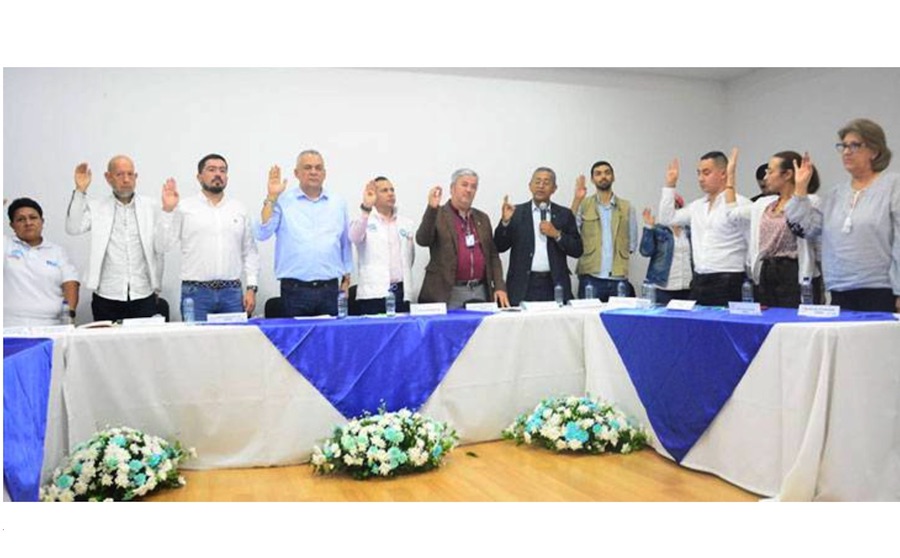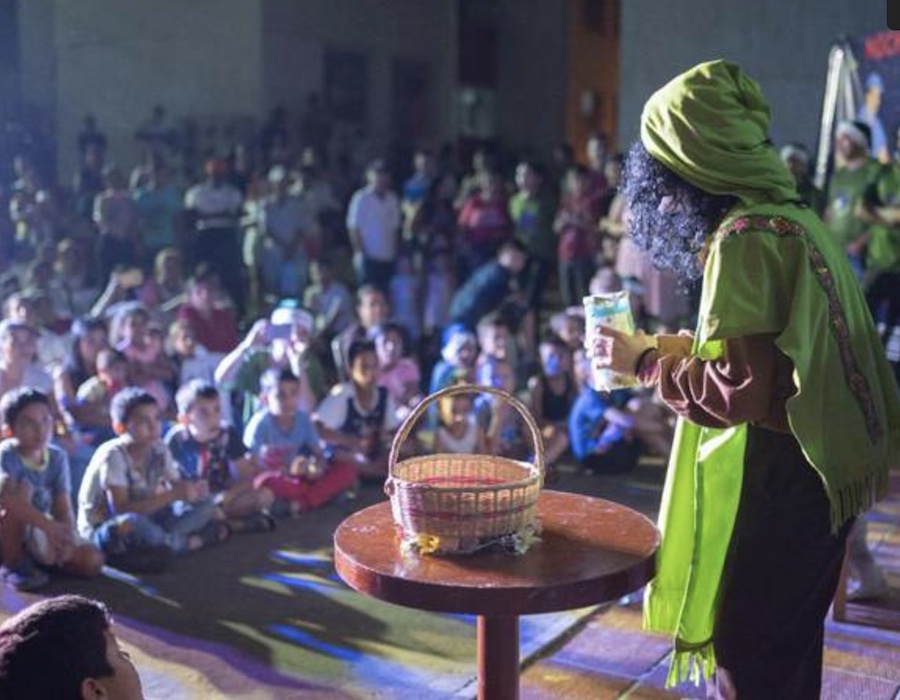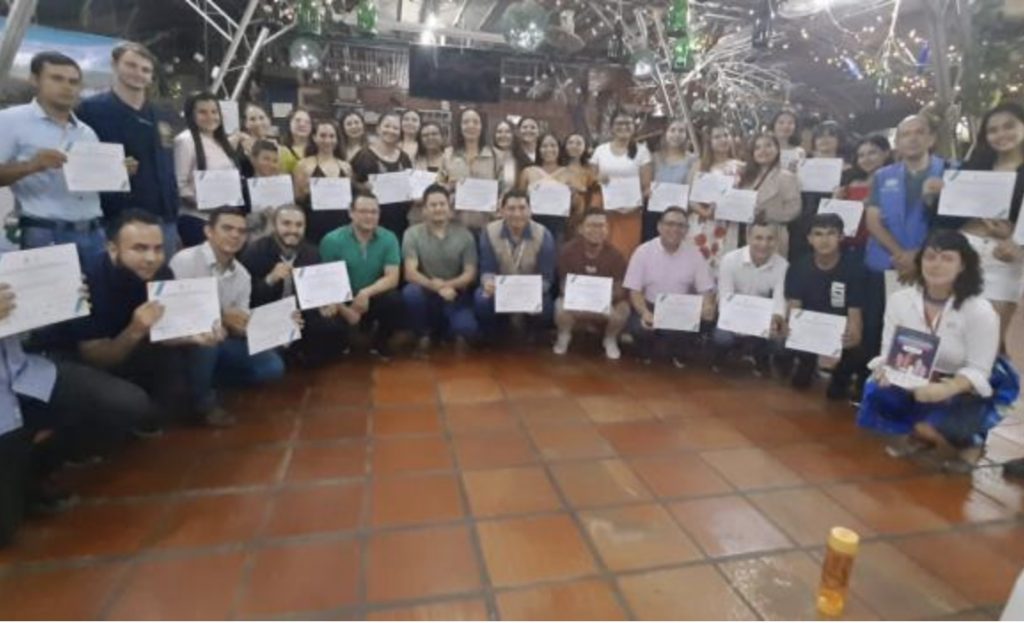. DEMOCRATIC PARTICIPATION . .
An article from Peoples Dispatch (republished under a Creative Commons Attribution-ShareAlike 4.0 (CC BY-SA) license)
The much awaited return of Brazil to the Community of Latin American and Caribbean States (CELAC) was celebrated during the VII Summit of the bloc on Tuesday January 24. In his opening address to the Summit, Argentine President Alberto Fernández highlighted the return of Brazil to the bloc and emphasized that “a CELAC without Brazil is a much emptier CELAC”.
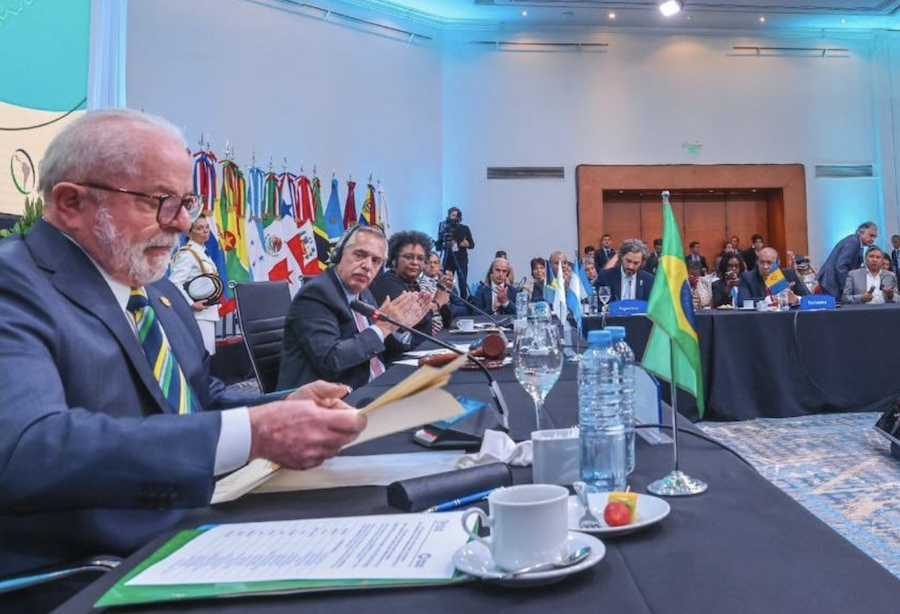
Luiz Inácio Lula da Silva addresses the VII CELAC Heads of State Summit. Photo: Ricardo Stuckert
Fernández received Lula on Monday January 23 at the Casa Rosada, the seat of the Argentine government, and the two leaders defended the resumption of diplomacy and cooperation between the two largest economies in South America.
Brazil left the CELAC during the government of Jair Bolsonaro (PL), a measure that Lula classified as “inexplicable”.
In his speech, the Brazilian president defended points that can collaborate towards regional integration and a “peaceful world order”, such as the potential to participate in the energy transition of Latin American and Caribbean countries.
Read the full speech of Luiz Inácio Lula da Silva below:
Dear friend Alberto Fernández, President of Argentina, President pro tempore of CELAC and world football champion, who fraternally welcomes us in Buenos Aires,
Dear fellow heads of state and government of the countries that make up our region, and our friends who are present,
As fate would have it, Comrade Alberto Fernández, my first activity outside the country in this new mandate was in Argentina, and for a Summit meeting of the Community of Latin American and Caribbean Nations.
In my first speech after the election results, I stated that Brazil was returning to the world. Nothing could be more natural than to start this path of return through CELAC.
Throughout the successive Brazilian governments since the re-democratization, we have worked hard and with a sense of mission towards regional integration and the consolidation of a peaceful region, based on relations marked by dialogue and cooperation. The unfortunate exception was the recent years when my predecessor took the inexplicable decision to withdraw Brazil from CELAC.
During my first two mandates, I was dedicated, along with so many that I see gathered here today around this table, to the task of building a Latin America based on bonds of trust.
It is with great joy and very special satisfaction that Brazil is back in the region and ready to work side by side with all of you, with a very strong sense of solidarity and proximity.
Today I renew, with emotion, the spirit that animated us in 2008, when we hosted in Costa do Sauípe, in the Brazilian state of Bahia, the first Latin American and Caribbean Summit, which three years later would evolve into the format of this Community.
That meeting had a historical meaning that is still very current. Because it was the first time that the heads of state and government of Latin America and the Caribbean came together, without any foreign tutelage, to discuss our problems and seek our own solutions to the challenges we share.
This spirit – of solidarity, dialogue, and cooperation – in a region of the size and importance of Latin America and the Caribbean could not be more current and necessary.
The world is going through a time of multiple crises: pandemics, climate change, natural disasters, geopolitical tensions, pressures on food and energy security, threats to representative democracy as a form of political and social organization. All this against an unacceptable backdrop of increasing inequality, poverty, and hunger.
I want to take this opportunity to thank each and every one of you who have stood up for Brazil and for the Brazilian institutions over the last few days in repudiation of the anti-democratic acts that took place in Brasilia. It is important to emphasize that we are a peaceful region that repudiates extremism, terrorism, and political violence.
Most of these challenges, as we know, are global in nature, and require collective responses. We do not want to import into the region particular rivalries and problems. On the contrary, we want to be part of the solutions to the challenges that belong to all.
CELAC has advanced and collaborated in this recent period to prove the importance and the potential of this mechanism. I was very pleased to learn how much has been built during the recent presidencies of Mexico and Argentina, which coincided with one of the most difficult international periods.
(Article continued in the column on the right)
Questions related to this article:
The culture of peace at a regional level, Does it have advantages compared to a city level?
Where in the world can we find good leadership today?
(Article continued from the column on the left)
CELAC acted promptly during the COVID-19 pandemic, including the constitution of a plan to strengthen the production capacities of vaccines and medicines.
CELAC did not shy away from the challenges of food security, energy security, and climate change.
I am convinced that, with a pragmatic sense and based on collaboration with specialized organizations and agencies, such as FAO, WHO, and ECLAC, among many others, we have much to contribute to each of these issues.
In the area of energy, we have very special capacities to participate, in an advantageous way, in the global energy transition. We have diversified energy matrices and potential for growth in renewable and clean energies.
In addition to this, our territories are home to some of the main biomes; we have strategic natural resources, such as critical minerals; we preserve a significant portion of the planet’s biodiversity; and we are a powerhouse in aquifer resources, key to the future of humanity.
At the COP27, in Egypt, I announced that Brazil will soon convene a Summit of Amazon Countries. The cooperation that comes from outside our region is very welcome, but it is the countries that are part of these biomes that should sovereignly lead the initiatives to take care of the Amazon. That is why it is critical that we value our Amazon Cooperation Treaty Organization – ACTO.
Brazil recently presented the candidacy of Belém do Pará to host the COP-30 in 2025. The support we are receiving from the CELAC countries is indispensable for us to show the rest of the world the richness of our biodiversity, the potential for sustainable development and green economy, and, of course, the importance of preserving the environment and fighting climate change.
Ladies and gentlemen,
There is a clear contribution to be made by the region to the construction of a peaceful world order, based on dialogue, the strengthening of multilateralism and the collective construction of multipolarity.
We consider essential the development and deepening of dialogues with extra regional partners such as the European Union, China, India, ASIAN and, especially, the African Union.
My friends
The various crises we are experiencing in the world today demonstrate the value of integration. The COVID-19 pandemic has highlighted the risks associated with our excessive dependence on key inputs for the well-being of our societies.
This does not mean that we should close ourselves off from the world. It only highlights that this integration will be on better terms if we are well integrated in our region. We must join forces for better physical and digital infrastructure, for the creation of value chains between our industries, and for more investment in research and innovation in our region.
Our development strategy must go hand in hand with the reduction of inequality in its various dimensions, with guaranteed access to fundamental rights in the fields of education, health, and work, among many others. In order to grow in a sustainable way, we cannot continue to have unacceptable poverty and hunger rates, nor can we continue to live with the inequality and gender violence that affect half of our populations. It is necessary to respect and protect our Indigenous peoples that are still threatened and neglected. It is necessary to work so that the color of our skin no longer defines the future of our young people.
Nothing should separate us, since everything brings us together. Our colonial past. The intolerable presence of slavery that marked our profoundly unequal societies. The authoritarian temptations that even today challenge our democracy.
But also the immense cultural wealth of our Indigenous peoples and the African diaspora. The diversity of races, origins, and creeds. The shared history of resistance and struggle for autonomy. All this makes us feel part of something greater and feeds our search for a common future of peace, social justice, and respect in diversity.
For this reason, I could not end without paying tribute to an extraordinary Brazilian who dedicated himself to rethinking our region when a Latin American and Caribbean community was still a mirage.
Last October, Darcy Ribeiro, a public man and one of our greatest thinkers, would have turned 100 years old. Having lived in exile in the 1960s and 1970s, he was one of the first to speak of our unity in diversity. This Patria Grande, and the particular contribution to civilization that our region has to give to the world.
Brazil is once again looking to its future with the certainty that we will be associated with our neighbors bilaterally, in Mercosur, in UNASUR and in CELAC.
To comrade Ralph Gonsalves, Prime Minister of Saint Vincent and the Grenadines, who takes over CELAC, I wish you all the luck in the world.
It is with this feeling of common destiny and belonging that Brazil returns to CELAC, with the feeling of finding oneself again.
Thank you very much.


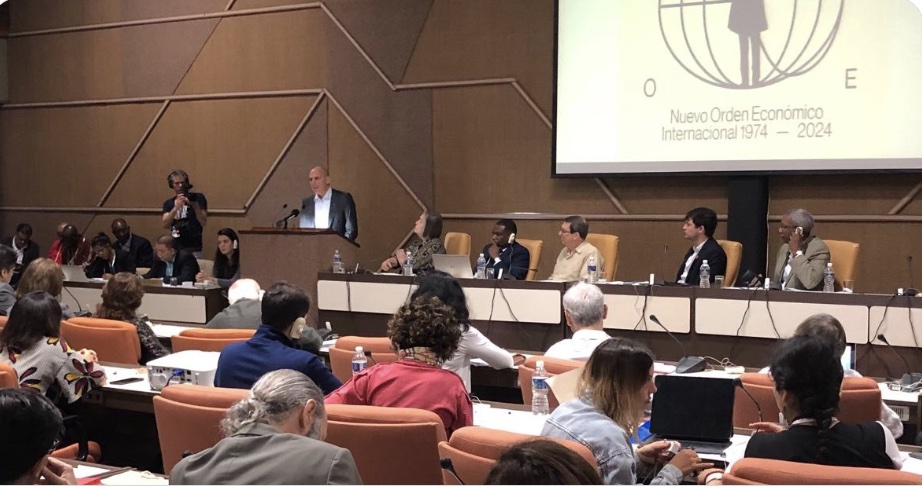
 Video of Tribunal
Video of Tribunal